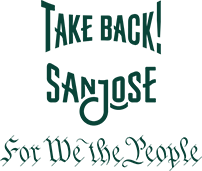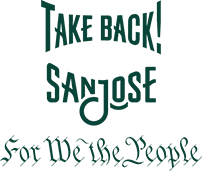SJ Mayor Mahan wants to tie city leadership’s pay to outcomes in homelessness, public safety, clean neighborhoods, and business development. But will it work? In an Opp Now exclusive Q&A, entrepreneur and MCC Councilmember Gus Mattammal says it’s worth a try, but progress is much more feasible in two of the targeted areas.
Opportunity Now: Do you support Mayor Mahan’s proposal that ties pay raises for San Jose City leadership to performance metrics?
Gus Mattammal: If it’s done right, this is a very good idea; but if not, it’s not going to work, and will make it harder to do in the future. Compensation systems always have to be designed very carefully because you can distort incentives as much as you improve them.
ON: How might you distort an incentive?
GM: Let’s take sales, for instance. If you’re compensated just on how many leads you called, you may call a bunch of people that you know are never gonna buy a thing.
ON: There’s also the problem that city government is complex and has interdependent agencies; it’s not exactly comparable to a startup tracking sales.
GM: Yeah, grading people on things that they don’t actually have control over is just going to make everybody hate their jobs, right? And it’s not going to necessarily incentivize the performance you want to have.
ON: Of course, the plan only applies to city leadership. If it’s implemented well, do you think pay-for-performance should be offered to all city workers?
GM: A lot of the frontline workers are unionized, right? I would be open to a bonus pool that’s outside the normal contract. So your contract is your contract, nobody’s messing with it. But maybe introduce an extra pot of money, and it’s performance-based.
ON: Could that be enough to make a difference and improve performance?
GM: That’s very much an open question. In a world where you’re essentially practically unfireable, people might say, “Do I want to work a little extra harder for a little extra money? Maybe I do. Maybe I don’t.” That’s why I think it’s worth doing the experiment and seeing if it actually does something.
ON: Mayor Mahan is big on dashboards; do you think they’ll help bring improvements in the four key areas he’s focused on: public safety, clean neighborhoods, business investment, and homelessness?
GM: I think transparency is good. Collective performance of governments in the form of dashboards, I think it’s useful for the public to be able to see that.
ON: And the dashboards are already live.
GM: Those are fancy-looking dashboards. Probably somewhere close to zero regular people will look at them; but to the extent they create an objective system of performance measurement, they may well produce some value.
ON: And in terms of the mayor’s proposal, where are metrics and transparency going to have the biggest impact?
GM: Business investment is super responsive to local policy, and it’s a very clear thing to measure. People put in money, or they don’t put in money. There’s also a lot of very clear data on public safety and a lot of things you could do locally that don’t get swamped by state policy.
But homelessness is a little bit harder of a thing to control in your own jurisdiction. And in terms of metrics, putting people out there to count homeless people. How accurate is that ever?
ON: Say there’s some way to reliably track and improve homelessness metrics; what percentage improvement is realistic?
GM: On homelessness, I don’t know. If you get to 10% improvement on it, I think in California, that’s like a home run because as it is, it’s just getting worse.
ON: The SJ Merc quotes Mahan as saying he wants the “conversation to revolve less around our opinions, or our ideology or virtue signaling, and to be much more centered on a rational debate about what will measurably move the needle on things like unsheltered homelessness and public safety.”
GM: I will say there’s a lot of virtue signaling in California, and I appreciate that he’s trying to do something that’s more data driven. Philosophically, I think he’s going down the right track.

